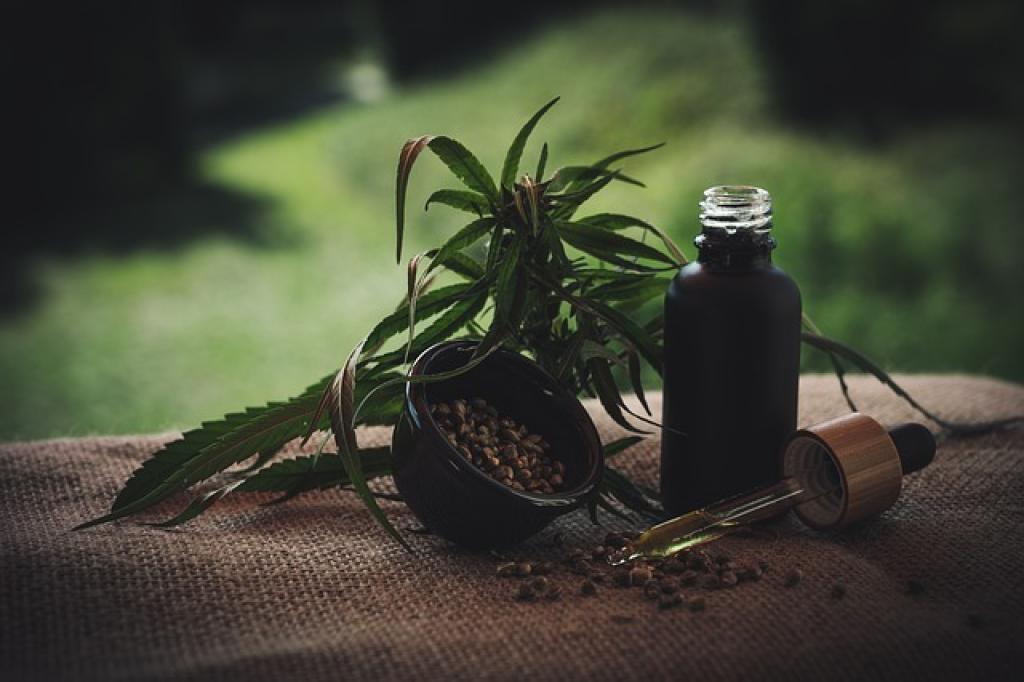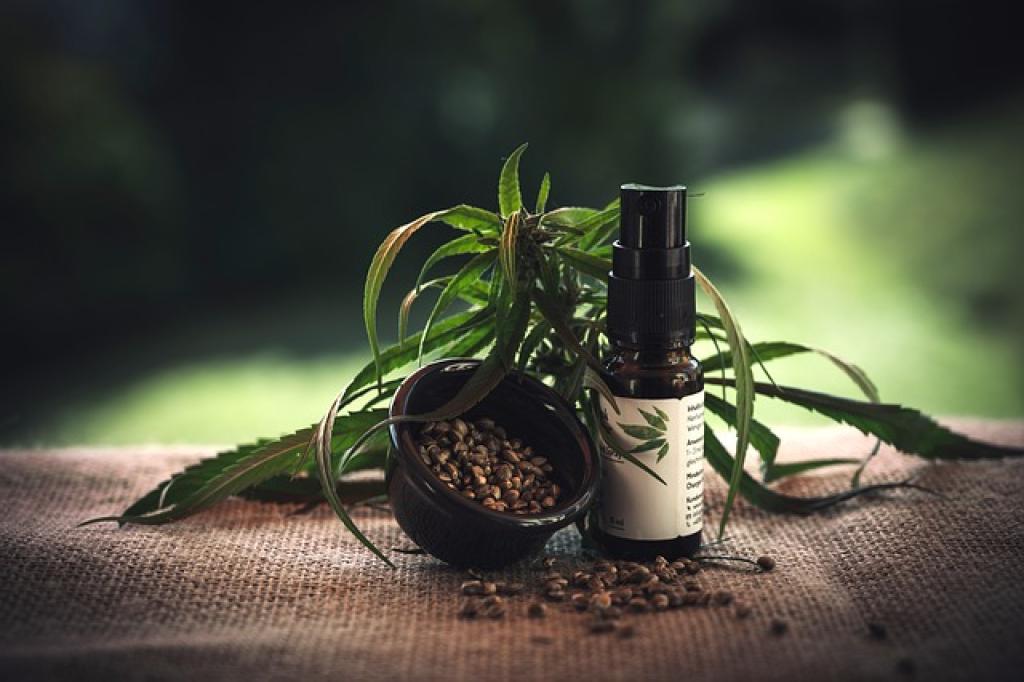CBD has taken the wellness world by storm, but what exactly makes it so special? This intriguing compound, found in cannabis plants, is touted for its potential to soothe anxiety, alleviate pain, and even help with sleep.
At the heart of CBD’s magic lies its interaction with our body’s own endocannabinoid system (ECS). The ECS plays a crucial role in maintaining balance, or homeostasis, within our body.
But how does it work? CBD doesn’t directly latch onto cannabinoid receptors like THC, the famous psychoactive cousin. Instead, it influences various receptors and pathways, promoting the body’s ability to maintain equilibrium.
Ready to dive deeper? Let’s explore the fascinating science behind CBD and how it harmonizes with our body’s intricate systems. You’ll discover what makes this natural compound a potential game-changer in health and wellness.
Understanding the Endocannabinoid System
The endocannabinoid system (ECS) is a complex cell-signaling system identified in the early 1990s by researchers exploring THC, a well-known cannabinoid. The ECS is present in all vertebrates and plays a pivotal role in regulating a broad range of functions and processes in the body.
Key Components of the ECS
The ECS consists of three main components: endocannabinoids, receptors, and enzymes. Endocannabinoids are naturally occurring compounds that our body produces to maintain balance. The two primary endocannabinoids are anandamide (AEA) and 2-arachidonoylglycerol (2-AG).
Receptors, mainly CB1 and CB2 receptors, are found throughout our body. CB1 receptors are primarily located in the brain and central nervous system, while CB2 receptors are more common in the immune system and peripheral organs.
Enzymes are responsible for breaking down endocannabinoids once they’ve done their job. The two main enzymes are FAAH, which degrades anandamide, and MAGL, which breaks down 2-AG.
How CBD Interacts with the ECS
Unlike THC, CBD doesn’t bind directly to CB1 or CB2 receptors. Instead, it influences the ECS by activating or inhibiting various pathways and receptors outside of the ECS, such as serotonin and vanilloid receptors. This indirect action helps modulate the ECS, potentially providing a calming effect, reducing inflammation, and promoting overall well-being.
By understanding the basics of the ECS, you can appreciate how CBD might help maintain your body’s delicate balance. Next, let’s delve into the specific ways CBD can benefit our health.
How CBD Interacts with the Body
CBD, or cannabidiol, is a natural compound found in the hemp plant. Its interaction with the body is quite fascinating and diverse. Unlike THC, CBD is non-psychoactive, meaning it won’t get you “high.” Instead, it works quietly in the background to support various bodily functions.
Interaction with Receptors
CBD interacts with several receptors in the body, not just those in the endocannabinoid system. One key group of receptors it influences is the serotonin receptors, particularly the 5-HT1A receptor. This interaction can potentially help elevate mood and alleviate anxiety.
CBD also activates the TRPV1 receptor, known for playing a role in pain perception and inflammation. By targeting these receptors, CBD can help manage discomfort and inflammation naturally.
Modulating the Endocannabinoid System
While CBD doesn’t bind directly to CB1 and CB2 receptors, it does influence them in other ways. For example, CBD may prevent the breakdown of endocannabinoids like anandamide, allowing these compounds to have a more prolonged effect in the body. This action helps maintain homeostasis, or balance, throughout various bodily systems.
CBD also has an impact on GABA receptors, which are known to promote calming effects. This interaction may explain why many people report feeling relaxed after taking CBD.
Potential Benefits of CBD
CBD has been gaining popularity for its potential to offer a range of health benefits. Let’s dive into some of the ways this natural compound might be able to support your well-being.
Anxiety and Stress Relief
One of the most talked-about benefits of CBD is its potential to help manage anxiety and stress. Many users report feeling a sense of calm and relaxation after taking CBD, and some studies even suggest it can help with anxiety disorders. It seems that CBD interacts with serotonin receptors in the brain, which can elevate mood and reduce feelings of stress.
Pain Management
CBD might also have a role in pain relief. From chronic pain to minor aches, some people find that CBD helps ease their discomfort. Its interaction with TRPV1 receptors, which are involved in pain and inflammation, suggests that CBD could be a natural alternative to traditional pain relievers.
Improving Sleep Quality
Struggling with sleep issues? CBD may help with that too. Many people find that taking CBD before bed helps them to fall asleep faster and improves the quality of their sleep. Its calming effects are believed to be the reason behind this benefit, making it easier for users to relax and drift off.
Skin Health
Topical CBD products—like creams and balms—are becoming increasingly popular for their potential to improve skin health. CBD’s anti-inflammatory properties can help soothe conditions like eczema and acne. Additionally, its antioxidant characteristics may offer anti-aging benefits, reducing wrinkles and promoting a youthful glow.
Heart Health
Emerging research also points to the potential heart health benefits of CBD. Some studies suggest that CBD can help lower high blood pressure, which is often linked to stress and anxiety. By promoting relaxation and reducing stress, CBD might indirectly support a healthier heart.

Factors Affecting CBD’s Effectiveness
So, you’ve decided to give CBD a try—but did you know that several factors can influence how effective it will be for you? Understanding these can help you get the most out of your CBD experience.
Dosage
The amount of CBD you take plays a significant role in its effectiveness. Dosage can vary depending on factors like body weight, the condition you’re treating, and your individual body chemistry. It’s often recommended to start with a lower dose and gradually increase it until you find what works best for you.
Method of Consumption
How you take CBD matters too. Whether you choose oils, capsules, edibles, or topicals, each method affects how quickly and efficiently CBD is absorbed into your bloodstream. Oils and tinctures, for example, are generally fast-acting because they’re absorbed sublingually (under the tongue). In contrast, edibles take longer to kick in but offer a more prolonged effect.
Quality of the Product
Not all CBD products are created equal. The quality of the CBD you use can greatly impact its effectiveness. Look for products that are third-party tested for purity and potency. Full-spectrum CBD products, which contain a range of cannabinoids and terpenes, might also offer enhanced benefits compared to CBD isolate.
Your Body’s Endocannabinoid System
Everyone’s body is different, and your endocannabinoid system (ECS) can significantly affect how you respond to CBD. The ECS is involved in regulating various bodily functions like sleep, mood, and pain. Some people may naturally have more or fewer endocannabinoid receptors, which can influence how they experience the effects of CBD.
Timing
When you take CBD can also make a difference. For instance, taking CBD in the morning might help with daytime anxiety or focus, while taking it in the evening could aid in sleep. Pay attention to how your body responds at different times to find the optimal timing for your needs.
Lifestyle and Diet
Believe it or not, your lifestyle and diet can also affect how well CBD works for you. A balanced diet and regular exercise can improve your overall health, making it easier for your body to respond positively to CBD. On the other hand, factors like stress and poor diet might reduce its effectiveness.
Research on CBD’s Efficacy
CBD has become a buzzword in wellness circles, but what does the research actually say about its effectiveness? Time to dive into the science behind it!
Pain and Inflammation
One of the most well-documented areas of CBD research is its potential to alleviate pain and reduce inflammation. Several studies suggest that CBD interacts with receptors in the brain and immune system, reducing inflammation and pain signals. This has made CBD a popular option for people with chronic conditions like arthritis.
Anxiety and Depression
Another promising area of research is CBD’s impact on mental health. Early studies indicate that CBD may help reduce symptoms of anxiety and depression. For example, a study published in the journal Neurotherapeutics found that CBD seems to work directly on serotonin receptors in the brain, which are key to managing mood and anxiety levels.
Neuroprotective Properties
CBD is also being investigated for its potential neuroprotective properties. Research has shown that it may help in conditions like multiple sclerosis and epilepsy. The FDA has even approved a CBD-based drug called Epidiolex for treating certain types of severe epilepsy.
Sleep Disorders
Struggling with sleep? Research shows that CBD may help improve sleep quality by addressing issues like anxiety and chronic pain that disrupt sleep. While more studies are needed, there’s preliminary evidence suggesting that CBD can help individuals achieve a more restful night’s sleep.
Skin Conditions
Last but not least, CBD is gaining attention for its potential benefits in treating skin conditions like acne and eczema. Its anti-inflammatory properties can help soothe irritated skin, and some studies suggest it may also regulate oil production.
The Bottom Line
CBD is making waves in the wellness industry, and for good reasons. From alleviating chronic pain and reducing inflammation to easing anxiety and possibly improving sleep, the potential benefits of CBD appear promising. Not to mention, ongoing research continually unveils new areas where CBD might offer support.
However, it’s critical to remember that while the early signs are encouraging, much of the research is still in its infancy. This means we should remain hopeful but cautious until further studies provide more definitive answers.
If you’re considering adding CBD to your routine, it’s wise to consult with a healthcare professional first. They can help you navigate dosing and ensure it won’t interact with any medications you’re currently taking.
Keep in mind, that quality matters. Given the booming market, not all CBD products are created equal. Look for reputable brands that provide third-party testing to ensure purity and potency.
Ultimately, CBD holds a lot of potential, but it’s essential to approach it with both enthusiasm and prudence. Whether you’re seeking relief from chronic pain, battling anxiety, or simply curious about natural wellness alternatives, CBD might be worth exploring as part of your holistic approach to health.
Stay informed, stay curious, and who knows? CBD might just be the wellness boost you’ve been looking for.






